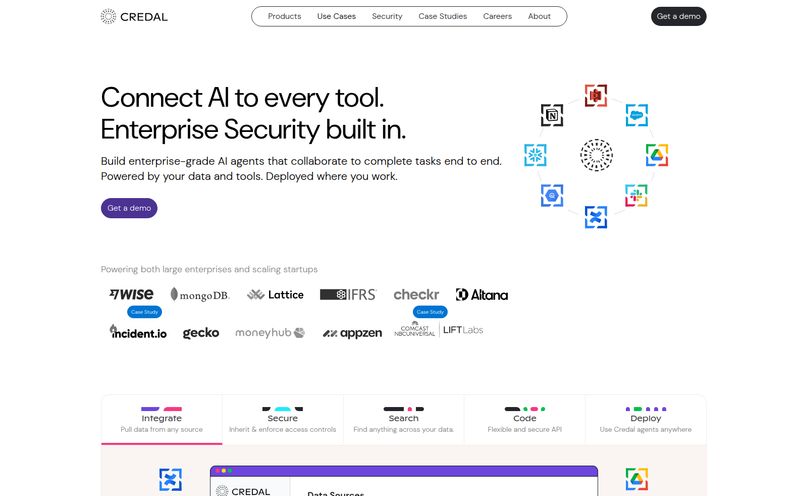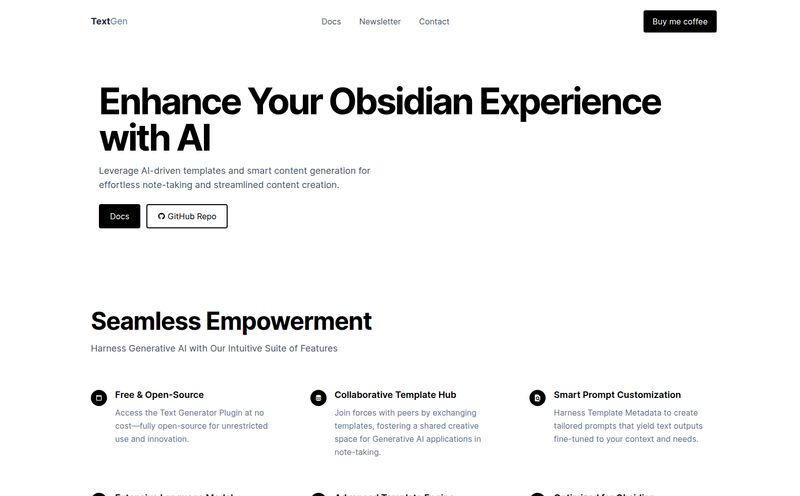If you've spent any serious time working with the new wave of AI models, you know the struggle. It's a familiar, slightly soul-crushing routine. You craft the perfect, elegant prompt for GPT-4. It's a masterpiece of instruction and context. You get back exactly what you wanted. High-fives all around. Then, you plug that same prompt into Claude 3 Opus, expecting similar magic, and... it gives you something completely different. Maybe it gets preachy, or misses the core instruction entirely. So you tweak it for Claude. Then you have to do it all over again for Llama 3, and maybe Google's Gemini for good measure.
It's like being a polyglot translator who has to re-learn the nuances of every dialect every single day. Frankly, it's exhausting and a massive time-sink. For agencies and dev teams, this isn't just an annoyance; it's a bottleneck that costs real money. That's why my ears perked up when I first heard whispers about a platform called BasicPrompt.
The promise? Write one prompt, and deploy it everywhere. A universal remote for the AI universe. Sounds too good to be true, right? Well, here's the interesting part. When I went to check out their site, `basicprompt.app`, I was met with a simple landing page that says, "Buy this domain." A bit of a mystery, right? Is this a project that's pre-launch? A stealth startup? Either way, the concept is so compelling I had to dig into what it's all about.
So, What's the Big Idea Behind BasicPrompt?
From what I've gathered, BasicPrompt isn't just another text editor for your prompts. The core concept is something they call a "Universal Prompt." Think of it like a master key. Instead of having a separate key for OpenAI, Anthropic, and Meta's models, you have one that's designed to work with all of them.
BasicPrompt acts as the smart translator in the middle. You build your prompt on their platform, using their structure and components, and their system then digests it and adapts it for the specific AI model you’re targeting. It automatically handles the subtle (and not-so-subtle) differences in how each model interprets instructions, context, and formatting. It’s a bit like a Rosetta Stone for large language models, translating your single intent into the native language of each AI.
This is a huge deal if it works as advertised. The dream of being model-agnostic, of being able to swap out the backend AI without having to rebuild your entire prompt library... that's a game-changer.
The Core Features That Really Grabbed My Attention
Digging into the info available, a few features really stood out to me as solving genuine, hair-pulling problems we face in the AI space.
The "Write Once, Run Anywhere" Dream for Prompts
This is the main event, of course. The ability to create a single prompt and have it work seamlessly across different models like GPT, Claude, and Llama is the headline feature. This isn't just about saving time on the initial write; it's about maintenance. When a model gets updated, or when you want to test a new, cheaper, or more powerful model, the friction is theoretically gone. You don't have to go back and painstakingly re-engineer dozens or hundreds of prompts. That alone is a massive win for scalability.
Putting Prompts to the Test with a Built-in TestBed
I love this. A huge part of prompt engineering is the endless cycle of tweak, copy, paste, run, compare. It’s tedious. BasicPrompt apparently has a built-in TestBed where you can gauge the performance of your universal prompt against different models side-by-side. You can see how each one responds, compare outputs, and refine your master prompt right there. This closes the feedback loop and turns a 20-minute, multi-tab nightmare into a streamlined, focused process. It's a small thing that makes a huge difference in workflow.

Visit BasicPrompt
Finally, Sanity for AI Teams: Collaboration and Versioning
If you've ever tried to manage a team's prompts in a shared Google Doc or a Slack channel, you know the chaos. Who has the latest version? Did Sarah's changes from yesterday get saved? Why did the production prompt suddenly break? BasicPrompt tackles this with built-in team collaboration and version control. Think of it like Git, but for prompts. You can track changes, revert to previous versions, and have a single source of truth for your team's most valuable AI assets. For any serious development team or agency, this isn't a 'nice-to-have,' it's an absolute necessity.
Getting Granular with U-Blocks
The documentation mentions support for "U-Blocks." While not explicitly defined, this sounds a lot like reusable prompt components or variables. Imagine creating a block for your standard brand voice, another for a specific legal disclaimer, and another for a JSON output format. Then, you can just slot these pre-built U-Blocks into any new prompt you create. This enforces consistency and dramatically speeds up the creation of complex, structured prompts. It's a more programmatic way of thinking about prompt creation, which I think is the direction we're all heading.
The Good, The Bad, and The... Unlaunched?
No tool is perfect, and even with its mysterious pre-launch status, we can see some potential upsides and downsides based on the concept.
On one hand, the advantages are clear. It simplifies a very complex problem, it helps teams work together more efficiently, and it future-proofs your work against the ever-shifting AI model landscape. The user-friendly interface promise is also a big plus for getting less technical team members involved in prompt creation. It's a fantastic pitch.
However, I do have some reservations. First, there's the potential for platform dependency. If you build your entire prompt library inside BasicPrompt, you're relying on their adaptation algorithms to work perfectly. If their service goes down or they change their pricing, migrating off could be a pain. Second, to get the most out of it, you'll need to learn their way of doing things, specifically with concepts like U-Blocks. It's a small learning curve, but it's there. It's a trade-off: you gain simplicity across models but add a dependency on a single platform.
So, What's the Deal with Pricing?
This is the million-dollar question, isn't it? As of right now, with the domain seemingly up for grabs, there's zero information on pricing. Nothing. We can only speculate. Given the target audience of developers and teams, I'd wager it won't be a simple pay-per-prompt model. I would expect a SaaS-style monthly subscription, likely with tiers based on the number of users, prompts managed, or API calls made through their system. Maybe a free tier for individual tinkerers and then paid plans for teams, something like `$25/user/month` could be a starting point. But that's just me guessing. For now, it's a mystery box.
Who Is This Tool Actually For?
Even in its conceptual stage, it's easy to see who would be lining up for this.
- AI Developers & Startups: Anyone building an AI-powered application who wants the flexibility to switch between models like GPT-4 and Claude 3 without a complete rewrite.
- Prompt Engineers: Professionals whose entire job is to craft and refine prompts. A tool like this would be the central hub of their workflow.
- Marketing & Content Teams: Teams using AI for content creation across different platforms who need consistent output regardless of the model they're using.
- Digital Agencies: Agencies managing AI workflows for multiple clients could standardize their prompt engineering process and save a ton of billable hours.
My Final Take: Is BasicPrompt a Tool to Watch?
Absolutely. 100%. Despite the weirdness with the domain, the idea behind BasicPrompt is spot on. It addresses a real, and growing, pain point in the applied AI field. The problem of prompt fragmentation is only going to get worse as more and more competitive models enter the market. A platform that can provide a unified, collaborative, and version-controlled environment for prompt management is not just a good idea, it's an inevitability.
The big question is one of execution. Can the BasicPrompt team (whoever and wherever they are) deliver on this ambitious promise? Will their adaptation algorithms be smart enough to truly capture the nuance of each model? I'm cautiously optimistic. I've signed up for updates, if I can find a way to, and I’ll be keeping a close eye on `basicprompt.app`. If it launches and lives up to even 80% of its promise, it could easily become an indispensable tool in my stack.
Frequently Asked Questions about BasicPrompt
- What is BasicPrompt?
- BasicPrompt is a platform designed to help users create, test, and deploy "Universal Prompts" that can work across multiple different AI models, such as those from OpenAI, Anthropic, and Meta, without needing to be rewritten for each one.
- Which AI models will BasicPrompt support?
- Based on the initial information, it's designed to be compatible with major models like the OpenAI GPT series, Anthropic's Claude family, and Meta's Llama models. The goal is cross-model compatibility.
- Is BasicPrompt free to use?
- There is currently no information available about pricing. The platform appears to be in a pre-launch or conceptual stage. It is likely to follow a SaaS subscription model, but this is only speculation.
- What are U-Blocks in BasicPrompt?
- U-Blocks seem to be a feature for creating reusable components or variables within your prompts. This allows for greater consistency and speed when building new, complex prompts by using pre-defined blocks of text or instructions.
- How does team collaboration work in BasicPrompt?
- BasicPrompt is said to include features for team collaboration and version control, similar to how Git works for code. This allows teams to work on prompts together, track changes over time, and maintain a single, reliable source for all their prompts.
Conclusion
The chase for the perfect prompt is a constant in our industry, but the need to customize that prompt for every new AI model is a massive drag on productivity. BasicPrompt, or at least the concept of it, presents a seriously compelling solution. By acting as a universal translator and providing a robust platform for testing and collaboration, it has the potential to become a cornerstone of the modern AI developer's toolkit. I'm excited to see if this mystery project materializes and makes our lives just a little bit easier.
References and Sources
- Prompting Guide - A general resource on the challenges and techniques of prompt engineering.
- TechCrunch - For staying up to date on new AI startups and funding announcements.



